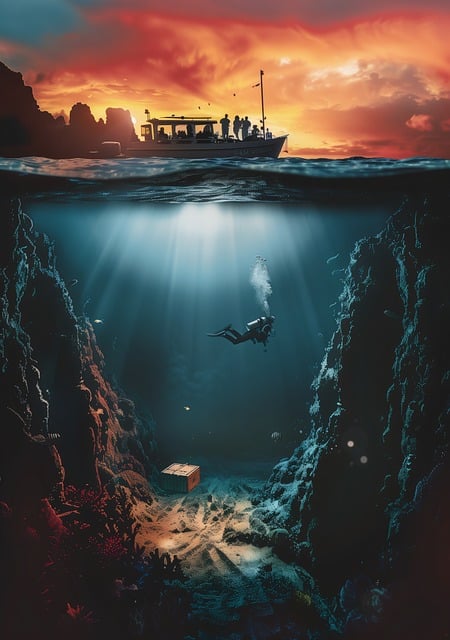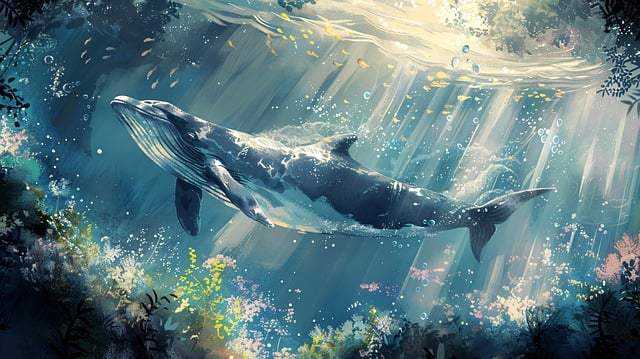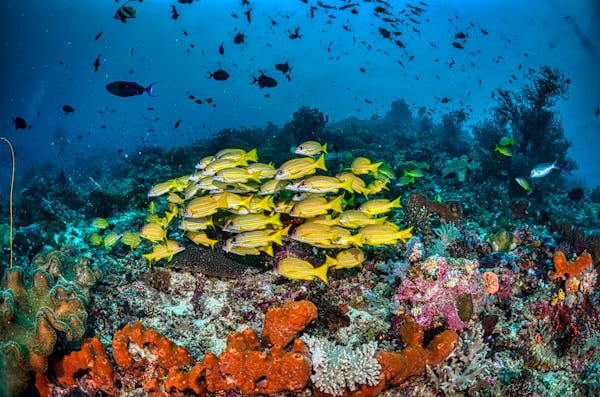Table of Contents
Water sustains life on Earth, fostering a rich tapestry of aquatic ecosystems that support a staggering array of organisms. This article delves into the fascinating world of water life, highlighting its diversity, ecological significance, conservation challenges, and human impact.

Diversity of Aquatic Life
Aquatic environments, ranging from freshwater lakes and rivers to expansive oceans and coral reefs, harbor an astonishing diversity of life forms:
- Marine Species: Oceans teem with marine biodiversity, including fish, mammals like whales and dolphins, sharks, sea turtles, and countless invertebrates such as corals, mollusks, and crustaceans.
- Freshwater Habitats: Rivers, streams, lakes, and wetlands support diverse freshwater species, including fish like trout and salmon, amphibians, reptiles, and a variety of aquatic plants and insects.
- Coral Reefs: Coral reefs, often called the “rainforests of the sea,” are hotspots of biodiversity, hosting thousands of species and providing habitats crucial for marine life.
Ecological Importance
Aquatic life plays a crucial role in maintaining healthy ecosystems and supporting global biodiversity:
- Food Web Dynamics: Aquatic organisms form intricate food webs, where each species plays a unique role in the transfer of energy and nutrients through the ecosystem.
- Oxygen Production: Marine plants like phytoplankton and seaweed contribute significantly to global oxygen production through photosynthesis, essential for all life forms.
- Climate Regulation: Ocean currents and marine ecosystems influence climate patterns and weather systems, playing a vital role in regulating Earth’s climate.
Human Dependence and Utilization
- Fisheries and Aquaculture: Fisheries provide a major source of protein and livelihoods for millions worldwide, while aquaculture supplements global seafood demand through controlled breeding and farming.
- Recreational Activities: Water bodies attract recreational activities such as fishing, boating, snorkeling, and diving, promoting tourism and outdoor leisure.

Conservation Challenges
Despite their importance, aquatic ecosystems face numerous threats that endanger marine and freshwater species:
- Overfishing: Unsustainable fishing practices deplete fish stocks and disrupt marine food webs, threatening the viability of fisheries and livelihoods dependent on seafood.
- Pollution: Industrial runoff, plastic waste, agricultural chemicals, and oil spills contaminate water bodies, harming aquatic life and disrupting ecosystems.
- Climate Change: Rising sea temperatures, ocean acidification, and extreme weather events pose serious threats to marine life, coral reefs, and coastal communities.
Conservation Efforts
- Marine Protected Areas (MPAs): Establishing MPAs helps conserve marine biodiversity, protect critical habitats, and promote sustainable fishing practices.
- Ecosystem Restoration: Restoration projects focus on rehabilitating degraded aquatic habitats, improving water quality, and enhancing biodiversity conservation efforts.
Human Impact and Sustainability
- Water Management: Responsible water management practices ensure sustainable use and conservation of freshwater resources, benefiting both aquatic ecosystems and human communities.
- Educational Initiatives: Raising awareness about the importance of aquatic ecosystems and promoting environmental education fosters conservation-minded attitudes and behaviors.

Future Prospects
- Technological Innovations: Advances in marine science, monitoring technologies, and sustainable fishing practices offer hope for effective conservation and management of aquatic resources.
- International Cooperation: Global initiatives and agreements promote cooperation among nations to address transboundary challenges and protect shared marine and freshwater resources.
Conclusion
Water life encompasses a vast and diverse array of organisms that play integral roles in global ecosystems and human societies. From sustaining biodiversity and supporting fisheries to regulating climate and providing recreational opportunities, aquatic life enriches our planet in countless ways. By prioritizing conservation efforts, adopting sustainable practices, and fostering stewardship of water resources, we can ensure the preservation of aquatic ecosystems for future generations to enjoy and benefit from. Let us appreciate and protect the wonders of water life, recognizing their profound importance to the health and balance of our planet Earth.